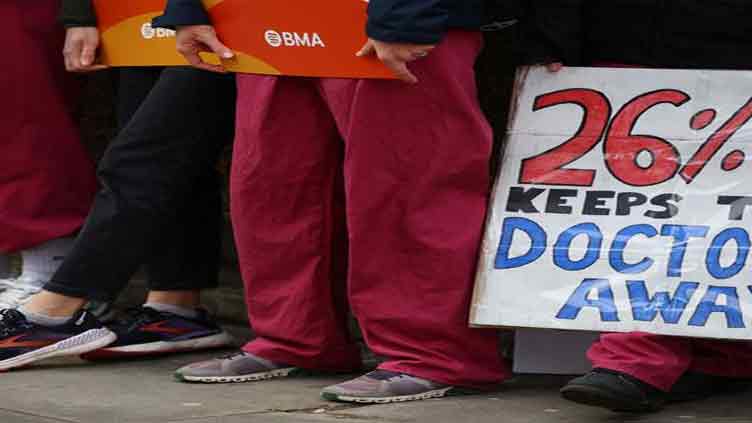Pay dispute: Senior doctors in England to strike again in October

Business
Say they are prepared for industrial action; Warn politicians must realise issue will not go away
LONDON (Web Desk) – National Health Service senior doctors in England will strike for three consecutive days during the ruling Conservative Party's annual conference in October, the British Medical Association (BMA) said in a statement to Reuters on Thursday.
The strikes from Oct 2-4 would be the longest period of action so far, the BMA said – in a push for increased salaries in line with inflation.
"Consultants are clear that they're prepared to take regular action and politicians must be left in no doubt that our dispute will not go away simply because they refuse to negotiate," BMA consultants committee chair Vishal Sharma said.
The new dates come as thousands of consultants began a 48-hour strike on Thursday. Another two days of industrial action are planned on September 19 and 20.
On Aug 7, senior doctors announced their plan to strike in September unless the government agreed to more pay negotiations. Consultant-level doctors in Britain's publicly funded health service are set to go on strike on Sept 19 and 20.
Junior doctors in England also walked out for four days from Aug 11-15, in their fifth round of strikes in the long-running pay dispute with the government.
They asserted that their pay had fallen so far behind inflation that they would find more lucrative opportunities working in coffee shops than in hospitals.
The NHS has been disrupted by healthcare workers walking out in demand of pay rises to cope with record inflation. British
Prime Minister Rishi Sunak last month said, however, that "no amount of strikes will change" the government's decision on public sector pay.
In July, Sunak had announced that pay negotiations had ended and that consultants would receive a 6 per cent pay rise. However, the BMA says consultants’ take-home pay has fallen by more than a third in 14 years.

